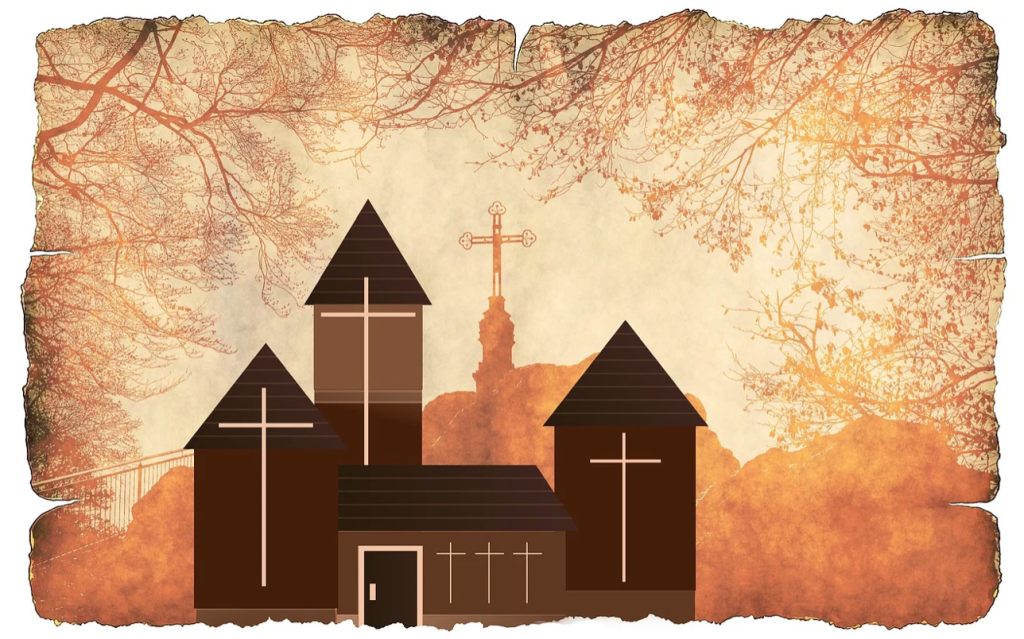By Abigail Palotas, Staff Writer
On March 31, 2025, the Supreme Court heard oral arguments for the first of three religious rights cases on the docket for the 2024-25 term.[1] This first case, Catholic Charities Bureau v. Wisconsin Labor & Industry Review Commission, could significantly shift the bounds of which organizations receive religious tax exemptions.[2] In the other two cases, which will be argued on April 22 and 30, the Court will consider whether parents can opt to have their children excused from instruction with LGBTQ-themed storybooks on religious grounds, and whether a Catholic online school can become the country’s first religious charter school.[3]
In Catholic Charities Bureau, a chapter of Catholic Charities in northern Wisconsin claims it should be able to opt out of the mandatory state unemployment compensation system and instead join a cheaper, alternative church system.[4] Catholic Charities alleges that the Wisconsin system allows the state to unconstitutionally pick and choose which religious organizations get tax exemptions.[5] Wisconsin’s rule essentially grants a religious exemption to charities whose work and motivations are religious but denies the exemption to organizations with only religious motivations.[6] Catholic Charities serves and employs people of all faiths, so even though it may have religious motivations, its daily work is not religious, and the organization does not qualify for the exemption.[7]
Catholic Charities argues that Wisconsin thus violates the Constitution’s prohibition of the entanglement of church and state.[8] The organization claims that Wisconsin had taken upon itself to decide religious questions, specifically, which activities can be religious and which ones can’t.[9] Moreover, Catholic Charities alleges that Wisconsin attempts to hold the Catholic Church to specific standards, such as proselytizing and limiting its services to members of its own faith, that directly contradict the Catholic Church’s actual religious beliefs.[10] Catholic Charities proposes that courts should instead focus on the “sincerity and religiosity” of the beliefs as opposed to deciding whether the organization’s activities are “inherently religious.”[11]
Catholic Charities also argues that the denial of the exemption violates the doctrine of church autonomy – the idea that the government should not interfere in internal church affairs, particularly, how a religious organization governs itself.[12] The diocese operates Catholic Charities as “separately incorporated ministries that carry out Christ’s command to help the needy.” However, Catholic Charities proposes that if it were part of the diocese as a single nonprofit, rather than being separately incorporated, it would be exempt from the state unemployment compensation system.[13]
In response, Wisconsin emphasized that the denial of the exemption was because Catholic Charities engaged in no religious activities whatsoever, not just a lack of proselytization.[14] Additionally, Wisconsin argues that the purpose of the exemption is not to alleviate burdens on specific religious beliefs or practices; rather, it is intended to “preserve the religious autonomy of organizations likely to present entangling unemployment questions.”[15] Lastly, the State responded to Catholic Charities’ claims regarding violation of church autonomy.[16] Wisconsin argues that the unemployment compensation system protects religious institutions from government compulsion and imposes only “minor and incidental incentives” for how organizations are structured.[17] Under the current system, Catholic Charities simply reimburses the State for benefits provided to their laid-off employees.[18] Furthermore, the law does not require Catholic Charities to restructure its operations, and it has not qualified for the exemption for decades.[19] The State maintains that the Wisconsin Supreme Court correctly interpreted the law, and regardless of correctness, the Supreme Court cannot review state court’s interpretation of state laws.[20]
The Trump Administration and two religious organizations filed amicus briefs in support of Catholic Charities.[21]The Trump Administration argued that the law is facially unconstitutional because it focuses on whether the organization actually operates primarily for religious reasons rather than on the nature of the activities.[22] The religious organizations, the Jewish Coalition for Religious Liberty and the International Society for Krishna Consciousness, asserted that the Wisconsin Supreme Court’s ruling could have a negative effect on religious minorities.[23]
On the other side, the International Municipal Lawyers Association, which represents local government lawyers, filed an amicus brief in support of Wisconsin.[24] The IMLA warns of large-scale revenue losses if states are forced to allow exemptions for every religiously-motivated organization regardless of the activities it performs.[25]
The justices, both liberal and conservative, posed a lot of questions for Catholic Charities, showing skepticism for its position that religious groups should be able to opt out of state unemployment compensation laws.[26] However, across the board, the justices seemed just as hostile towards the State’s unemployment tax system, asking where the line is to be drawn to determine if activities qualify as proselytizing.[27]
A decision in this case is expected by late June 2025.[28]
[1] https://www.scotusblog.com/2025/03/supreme-court-considers-catholic-charity-groups-bid-for-tax-exemption/.
[2] Id.
[3] Id.
[4] https://www.npr.org/2025/03/31/nx-s1-5345839/supreme-court-catholic-charities#:~:text=Hourly%20News-,Supreme%20Court%20appears%20to%20back%20tax%20exemption%20for%20Catholic%20Charities,mandatory%20state%20unemployment%20compensation%20system.
[5] Id.
[6] https://apnews.com/article/supreme-court-catholic-charities-wisconsin-supreme-court-50bd53ad748a147f9e28132512cf7b74.
[7] https://www.scotusblog.com/2025/03/supreme-court-considers-catholic-charity-groups-bid-for-tax-exemption/.
[8] Id.
[9] Id.
[10] Id.
[11] Id.
[12] https://www.scotusblog.com/2025/03/supreme-court-considers-catholic-charity-groups-bid-for-tax-exemption/.
[13] Id.
[14] Id.
[15] Id.
[16] Id.
[17] Id.
[18] https://www.scotusblog.com/2025/03/supreme-court-considers-catholic-charity-groups-bid-for-tax-exemption/.
[19] Id.
[20] Id.
[21] Id.
[22] Id.
[23] Id.
[24] https://www.scotusblog.com/2025/03/supreme-court-considers-catholic-charity-groups-bid-for-tax-exemption/.
[25] Id.
[26] https://www.npr.org/2025/03/31/nx-s1-5345839/supreme-court-catholic-charities#:~:text=Hourly%20News-,Supreme%20Court%20appears%20to%20back
%20tax%20exemption%20for%20Catholic%20Charities,mandatory%20state%20unemployment%20
compensation%20system.
[27] Id.
[28] Id.
